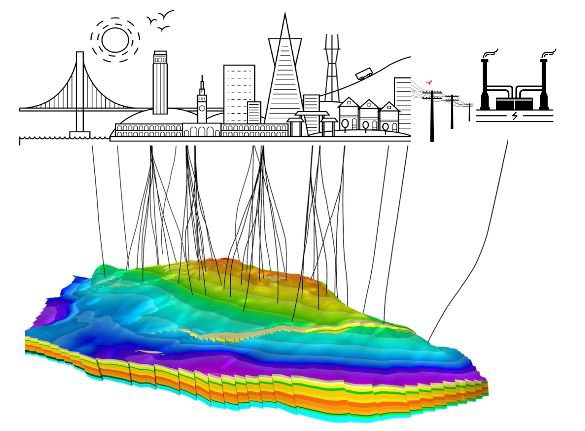ON THE ROCK | Health Makes Wealth
Awards & Nominations
ON THE ROCK has received the following awards and nominations. Way to go!
The Challenge | Health Makes Wealth
Farms in the rock
Rethinking the use of the subsoil from an extractive perspective to a space of cultivation.

In the history of mankind the birth of agriculture marks the moment when we pass from hunters and begin to cultivate the soil. But in subsoil we continue in the extractive stage and we still are not using the subsoil for cultivation.
The proposal is to rethink the use of the subsoil from an extractive perspective to a space of cultivation. The project intents to inject urban wastewater in subsoil formations so as to cultivate microorganisms to produce biogas and treat water.
That is, to use the subsoil as a huge fixed bed reactors where occurs, in a controlled way, chemical or biochemical processes for the production of materials with commercial interest. The "cultivation" can be done in sandstones, which are porous geological formations, that can accumulate fluids such as liquids or gases. Oil and gas reservoirs are well-known examples in which chemical and biochemical reactions may occur.
A well-known example of porous bioprocesses in the petroleum industry is the phenomenon of biogenic acidification in reservoirs. Bacterias present in the reservoir, in the presence of water containing sulfate ions and carbon (petroleum), metabolize hydrocarbons for energy and growth.
A fixed bed bioreactor can be defined as a compact compartment filled with particles, through which a fluid flows vertically or horizontally. Inside these compartments, chemical or biochemical reactions between components may occur, in batch or continuously.
The transformations can be accomplished by injecting enzymes or microorganisms. The main advantage of using natural geological formations is the fact that they could provide larger compartments in stable pressure and temperature conditions, whereas industrial plants are much more limited in terms of volume and would require controls for maintaining required conditions for biochemical reactions.
SpaceApps is a NASA incubator innovation program.